When a liberal newspaper pays a writer to defend and call for the broadcast of racist language you know things are bad. The Daily Mail in its typical full outrage mode suggest that only the “‘terminally thin-skinned’ could be offended by the character” who states “she kept referring to the Indians as [n word]. “No, no, no,” I said, “the [n word] are the West Indians. These people are w*gs”.
Hence, just as watching the Lib Dems voluntarily climb into bed with the Tories to inflict pain and misery on the working class British public, it remains disappointing to read TV critic Mark Lawson’s spirited call for the reinsertion of the n word and rescreening of Gowen’s racist tirade in a ‘cherished’ episode of Fawlty Towers.
His defence would be pretty compelling if not for one thing. The little caveat he mentions justifying his rationale is not so little.
Just as the ‘casual’ use of sexist imagery can promote misogyny without intention, racist language retains its ability to offend without the presence of deliberate malice.
The question of whether it is appropriate often depends on weighing a fine balance between proportionality (with consideration given to the context of the language used)and the advertised subject alongside audience expectations. For example, a parody of Jimmy Saville in a children’s programme may not be offensive to the audience, but it’s newly acquired historical and cultural context can render its transmission on a public broadcaster’s children’s channel as inappropriate. In short, too many of us who find child abuse offensive just don’t want it.
Lawson fails to recognise that it is this public service broadcasting element that makes comparisons between this and Tarantinos deliberately incendiary Django Unchained film disingenuous. Commercial cinemas do not have the same ability or reach to normalise the usage of odious ideology as state funded national media institutions can and often do.
A good example is when in 2009 the BBC sought to claim that the [n word] was no longer offensive because it had been ‘reclaimed’ by African people. It made this statement in response to a complaint about the use of the [n word] by a contributor on Radio 4’s Today programme who described the usage of racist epithets in the army and House of Parliament as ‘banter’ and ‘fun’.
This decision effectively ruled that usage of the [n word], at least by an ‘enlightened’ few, had a legitimate space in public broadcast.
It doesn't.
Thankfully it would seem that Auntie Beeb has grown up since then.
Therefore, instead of criticising the BBC and calling for the broadcast of unquestionably racist language in public airspace, the BBC should be commended for having the good sense to (reportedly) seek the approval of actor John Cleese's office to clean up instead of censoring this piece of celluloid history for broadcast during family time. It’s a responsible act similar to that of replacing expletives in action films with ‘motherfugger’ or ‘frack’.
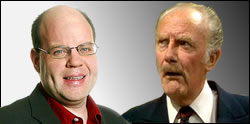
Lawson’s main caveat that “such speech was common at the time when the story is set” fails to recognise the offence normalisation of such speech caused at the time and still to this day as recent incidents in the football world demonstrate. He may be the TV critic but I would argue an element of the ‘joke’ is about the causal normalisation of such derisive language. The Major felt comfortable in using it amongst his peers just as fans on a Saturday terrace do.
Whilst as Lawson suggests that ‘most viewers of Fawlty Towers, then and now, are sophisticated enough to understand the difference between ... bigotry as a central theme and arguably an underlying impulse in the writing”. Some of the audiences and licensee fee payers without membership to the group defined by Lawson as ‘most’ are old enough to remember the offence caused by the original broadcast.
Now, as was then, we just don’t want it.
If there are those that wish to hear the unedited version of the episode then surely they can go online or purchase a DVD box set and enjoy racist language in the privacy of their own home, I just don’t see why I, my children and their friends have to pay via our license fee to be subjected to racist anti-African epithets especially at typically unguarded pre-watershed times.
Responsible broadcasting is NOT censorship.
Toyin Agbetu is a writer, film director, poet, and founder of Ligali, the pan African human rights based organisation.
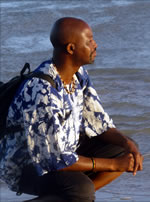
External Links
Guardian - Fawlty Towers isnt racist. Major Gowen isDont mention the ***: Censorship row as BBC cuts the Majors racist lines from classic Fawlty Towers episode
Intent, consent and the panto season of racist jokesBBC - N word has been ‘reclaimed’ and is no longer offensive
Hence, just as watching the Lib Dems voluntarily climb into bed with the Tories to inflict pain and misery on the working class British public, it remains disappointing to read TV critic Mark Lawson’s spirited call for the reinsertion of the n word and rescreening of Gowen’s racist tirade in a ‘cherished’ episode of Fawlty Towers.
His defence would be pretty compelling if not for one thing. The little caveat he mentions justifying his rationale is not so little.
Just as the ‘casual’ use of sexist imagery can promote misogyny without intention, racist language retains its ability to offend without the presence of deliberate malice.
The question of whether it is appropriate often depends on weighing a fine balance between proportionality (with consideration given to the context of the language used)and the advertised subject alongside audience expectations. For example, a parody of Jimmy Saville in a children’s programme may not be offensive to the audience, but it’s newly acquired historical and cultural context can render its transmission on a public broadcaster’s children’s channel as inappropriate. In short, too many of us who find child abuse offensive just don’t want it.
Lawson fails to recognise that it is this public service broadcasting element that makes comparisons between this and Tarantinos deliberately incendiary Django Unchained film disingenuous. Commercial cinemas do not have the same ability or reach to normalise the usage of odious ideology as state funded national media institutions can and often do.
A good example is when in 2009 the BBC sought to claim that the [n word] was no longer offensive because it had been ‘reclaimed’ by African people. It made this statement in response to a complaint about the use of the [n word] by a contributor on Radio 4’s Today programme who described the usage of racist epithets in the army and House of Parliament as ‘banter’ and ‘fun’.
This decision effectively ruled that usage of the [n word], at least by an ‘enlightened’ few, had a legitimate space in public broadcast.
It doesn't.
Thankfully it would seem that Auntie Beeb has grown up since then.
Therefore, instead of criticising the BBC and calling for the broadcast of unquestionably racist language in public airspace, the BBC should be commended for having the good sense to (reportedly) seek the approval of actor John Cleese's office to clean up instead of censoring this piece of celluloid history for broadcast during family time. It’s a responsible act similar to that of replacing expletives in action films with ‘motherfugger’ or ‘frack’.

Funny Racism?: Mark Lawson & Fawlty Towers ‘Major Gowen’
Fawlty Towers as sophisticated satire?
Lawson’s main caveat that “such speech was common at the time when the story is set” fails to recognise the offence normalisation of such speech caused at the time and still to this day as recent incidents in the football world demonstrate. He may be the TV critic but I would argue an element of the ‘joke’ is about the causal normalisation of such derisive language. The Major felt comfortable in using it amongst his peers just as fans on a Saturday terrace do.Whilst as Lawson suggests that ‘most viewers of Fawlty Towers, then and now, are sophisticated enough to understand the difference between ... bigotry as a central theme and arguably an underlying impulse in the writing”. Some of the audiences and licensee fee payers without membership to the group defined by Lawson as ‘most’ are old enough to remember the offence caused by the original broadcast.
Now, as was then, we just don’t want it.
If there are those that wish to hear the unedited version of the episode then surely they can go online or purchase a DVD box set and enjoy racist language in the privacy of their own home, I just don’t see why I, my children and their friends have to pay via our license fee to be subjected to racist anti-African epithets especially at typically unguarded pre-watershed times.
Responsible broadcasting is NOT censorship.
Toyin Agbetu is a writer, film director, poet, and founder of Ligali, the pan African human rights based organisation.

Toyin Agbetu
External Links
Guardian - Fawlty Towers isnt racist. Major Gowen isDont mention the ***: Censorship row as BBC cuts the Majors racist lines from classic Fawlty Towers episode
Ligali is not responsible for the content of third party sites
Intent, consent and the panto season of racist jokesBBC - N word has been ‘reclaimed’ and is no longer offensive
Speak Out!
Has racism become a socially acceptable fetish? Are today’s audiences too ‘sophisticated’ to enjoy offensive racism?Click here to speak out or read (3) comments about this article
If there are those that wish to hear the unedited version of the episode then surely they can go online or purchase a DVD box set and enjoy racist language in the privacy of their own home
Toyin Agbetu, Ligali Organisation
See Related:
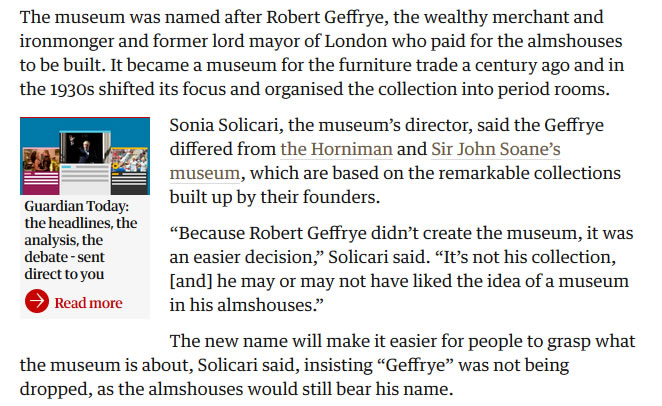
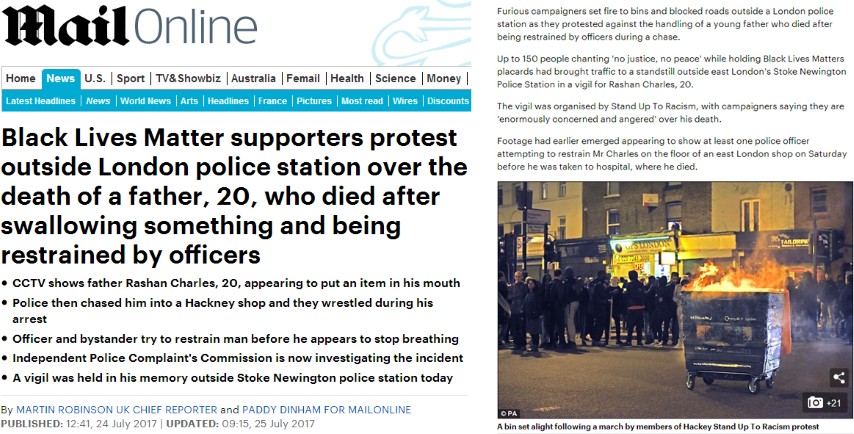
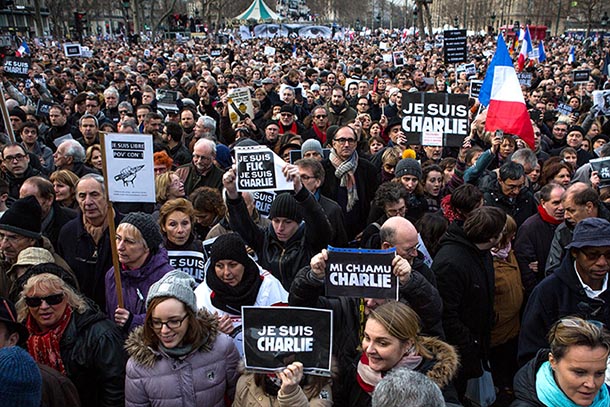

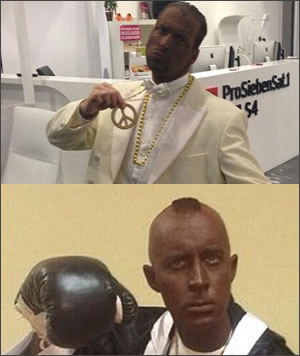
Get involved and help change our world